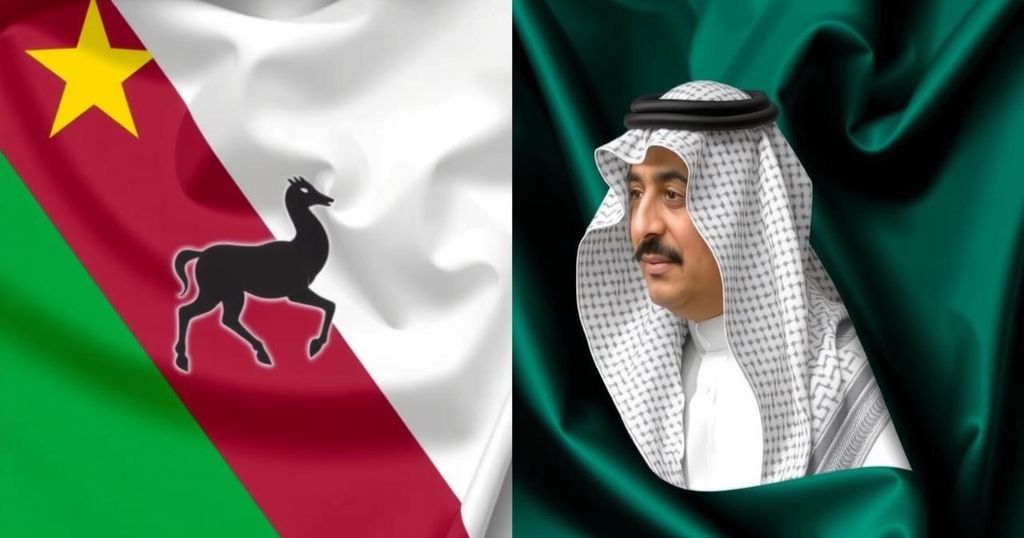Zambia and Saudi Arabia Formalize Debt Restructuring Agreement

Zambia and Saudi Arabia have signed a debt restructuring deal to reshape over $130 million of Zambian debt, alongside a $35 million loan for a new hospital. The agreements signify ongoing cooperation and aim to ensure economic sustainability for Zambia, which is also managing prior debts with France and international support to tackle food emergencies.
Zambia has formally entered into a debt restructuring agreement with Saudi Arabia, aimed at rescheduling over $130 million of its debt to the kingdom. The agreement was signed in Lusaka on Thursday by Situmbeko Musokotwane, the Zambian Minister of Finance and National Planning, and Sultan bin Abdulrahman Al-Marshad, Chief Executive Officer of the Saudi Fund for Development. This initiative marks a significant step towards fiscal sustainability, as emphasized by both parties during the signing ceremony.
Minister Musokotwane expressed that this debt restructuring agreement signifies a shared commitment to addressing Zambia’s financial challenges, contributing to sustainable economic growth. He acknowledged the constructive dialogue and collaboration with the Saudi Fund for Development, recognizing its leadership’s supportive role. Similarly, Al-Marshad highlighted that this agreement underscores the ongoing development partnership between Zambia and Saudi Arabia.
In addition to restructuring debt, the two nations also finalized a $35 million loan agreement for the construction of the King Salman Specialised Hospital in Zambia. This recent deal follows a prior agreement with France on December 8 to restructure debt owed to the European nation, reinforcing Zambia’s goal of returning to a sustainable debt trajectory, aided by the International Monetary Fund (IMF).
France has further extended a budgetary aid of €16 million over two years to support Zambia’s emergency food programs, in response to drought conditions exacerbated by the El Niño phenomenon. This assistance aligns with the international community’s efforts to bolster Zambia’s economy, which had previously benefited from substantial investments, particularly from Chinese state-owned banks in the late 2000s, aimed at diversifying its economic activity.
Despite these investments boosting Zambia’s economic profile, they also significantly increased the country’s debt and interest obligations, ultimately leading to a sovereign default in December 2020. The ongoing sovereign debt restructuring process under the G20 Common Framework has faced prolonged negotiations, emphasizing challenges within this framework that have stagnated Zambia’s economic progress for over three years. This situation has raised critical discussions about the need for reforms to better accommodate low-income countries experiencing similar debt challenges in the future.
The debt restructuring deal between Zambia and Saudi Arabia comes amid Zambia’s broader efforts to manage its debt burdens following a period of significant borrowing and economic investments. The nation’s financial difficulties were compounded by substantial loans, particularly from foreign sources, leading to a sovereign default in 2020. The Zambian government’s engagement with international partners reflects its commitment to economic reform and sustainable growth, in alignment with guidelines from the International Monetary Fund. Zambia’s experience highlights the complexities that developing nations face in modernizing their economies while managing escalating debt obligations.
The recent debt restructuring agreement between Zambia and Saudi Arabia not only addresses immediate financial obligations but also represents a crucial step towards economic recovery and sustainability for Zambia. By establishing partnerships and securing favorable loan terms for infrastructure projects, Zambia aims to improve its economic stability. Furthermore, the challenges encountered during the sovereign debt restructuring process underscore the need for systemic changes in international frameworks to better support countries facing similar fiscal pressures.
Original Source: www.dailynewsegypt.com








